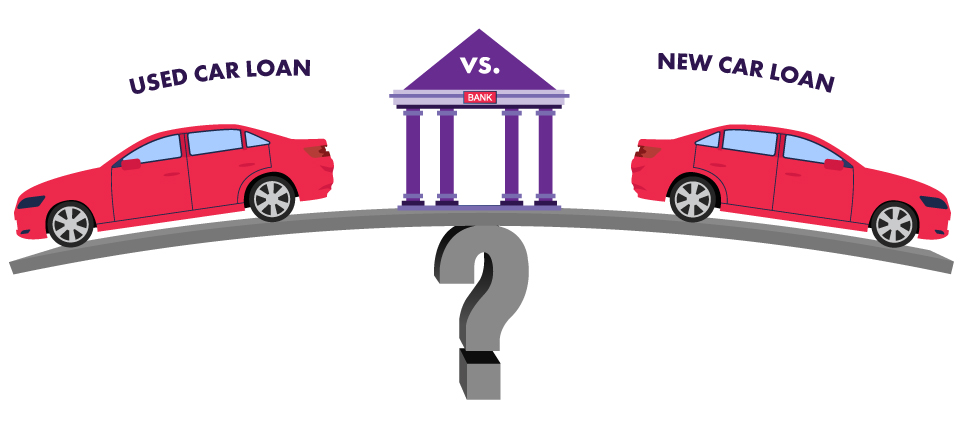Difference between pre-owned car loans Vs new car loans
The main difference between pre-owned car loans and new car loans is the interest rate and loan amount offered by lenders. Here are some other key differences:
Interest rates: Typically, interest rates for pre-owned car loans are higher than those for new car loans due to the higher risk associated with used cars. However, the interest rates can vary depending on the age and condition of the used car.
Loan amount: The loan amount for pre-owned cars is generally lower than for new cars, as lenders take into account the depreciation of the vehicle. The loan amount for pre-owned cars also depends on the age and condition of the car.
Loan tenure: The loan tenure for pre-owned car loans is usually shorter than for new car loans. The maximum tenure for a pre-owned car loan is generally up to 5 years, while for a new car loan, it can go up to 7 years.
Down payment: The down payment required for pre-owned car loans is generally higher than for new car loans. This is because lenders consider used cars to be a higher risk than new cars, and require more upfront payment to reduce their risk.
Documentation: The documentation process for pre-owned car loans is more extensive than for new car loans. This is because lenders need to verify the condition and ownership history of the used car to determine its value and eligibility for a loan.
Overall, pre-owned car loans are more suitable for those who want to save money on their car purchase and don’t mind driving a used vehicle. New car loans are more suitable for those who want a brand-new car with the latest features and technology and are willing to pay a higher price for it.
Pre-owned car loans have higher interest rates than new car loans due to the higher risk associated with used cars but can vary depending on the age and condition of the used car. The loan amount is lower than for new cars, and loan tenure is shorter than for new. Down payment is higher than for new car loans, as lenders consider used cars to be higher risk and require a more upfront payment. The documentation process is more extensive, as lenders need to verify the condition and ownership history to determine the value and eligibility for a loan.



